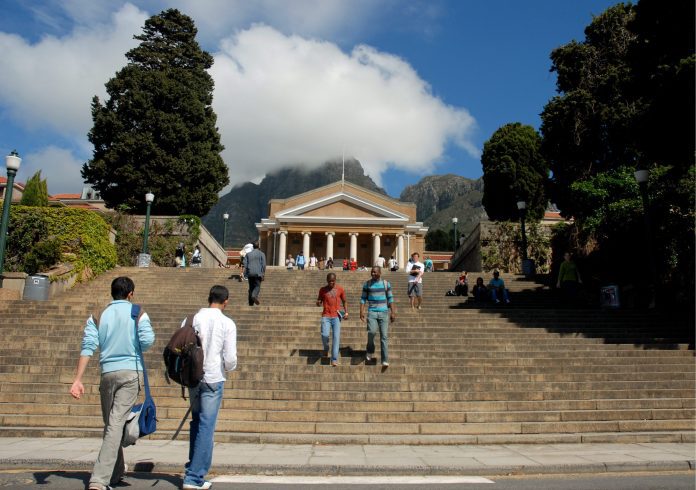Student representative council leaders from the country’s eight universities, who marched to the National Student Financial Aid Scheme (NSFAS) office in Cape Town yesterday [Wednesday] have given the tertiary education funding agency 48 hours to respond to their demands.
In their memorandum – which was received by NSFAS chief financial officer Masile Ramorwesi – the students presented a list of 16 demands relating to the method used by the scheme to pay allowances; the minimum number of course credits that qualify for funding; and the protracted time it takes the scheme to process appeals and funding decisions.
A total of eight universities including the University of Cape Town, University of Western Cape, University of KwaZulu-Natal and the University of the Free State, participated in the march.
The students’ leaders were protesting against the scheme’s use of third parties to pay student allowances; the imposition of course credit requirement to qualify for funding and the length of time it takes for the scheme to conclude appeals and funding decisions.
“We vehemently reject the introduction of the tender system in the payment of students. This system is the very system that has collapsed our country’s public sector and has plunged the country into a crisis of corruption that led to the deaths [at] Life Esidimeni, and the 15 people of Hammanskraal who have died due to the cholera outbreak,” the students said.
“We equally reject the 60% credit requirement, which seeks to exclude other students from the holistic experience of learning. It is our view as a collective that it cannot be that NSFAS is ignorant to the fact that learning is not only being able to pay one’s fees, but it has to do with the environment in which the student is in,” the students said in a memo.
The student leaders, who said they represent “the legitimate voice of the nearly one million university students across the country”, demand the following:
• Decentralisation of NSFAS administration.
• Immediate end to NSFAS direct payment system and for institutions to continue their payment system to students.
• Immediate attendance to and approval of current NSFAS appeals within the next four weeks.
• Cap on accommodation and allowances be scrapped entirely.
• Immediate release of the funding list.
• Close out for the students whose fees are not fully paid.
• Transport allowance for universities with unaccredited residences.
• Review on the imposed restrictions placed on students living with disabilities’ ability to purchase assistive devices and learning materials.
• Removal of the less than 60 credits rule as per the NSFAS funding renewal guidelines, and immediate full funding for all students affected by the less than 60 credits rule.
• Immediate removal of the board and CEO of NSFAS, and for NSFAS to be placed under administration.
• Fair treatment or equitable allocation of financial resources to all universities regardless of the historical classification under apartheid.
• Reworking of the funding model that takes in mind free, quality, decolonial education as a basic principle and right in the South African democratic dispensation.
• End to the foolishness of the idea of the missing middle.
• Independent audit into the financial and administrative resources and processes of NSFAS.
• Free education for all.
• Review and restructuring of the administrative system to allow students to receive their funding and display accurate information of their funding status.
NSFAS spokesperson Slumezi Skosana said the management of the funding scheme met representatives of the eight universities represented by SRC presidents and general secretaries.
“It was a peaceful protest. The memo was received by the CFO. We’ll respond in detail in 48 hours. We did have engagements with the SRC representatives,” he said.
For more education news from Sunday World, click here.
Follow @SundayWorldZA on Twitter and @sundayworldza on Instagram, or like our Facebook Page, Sunday World, by clicking here for the latest breaking news in South Africa.



